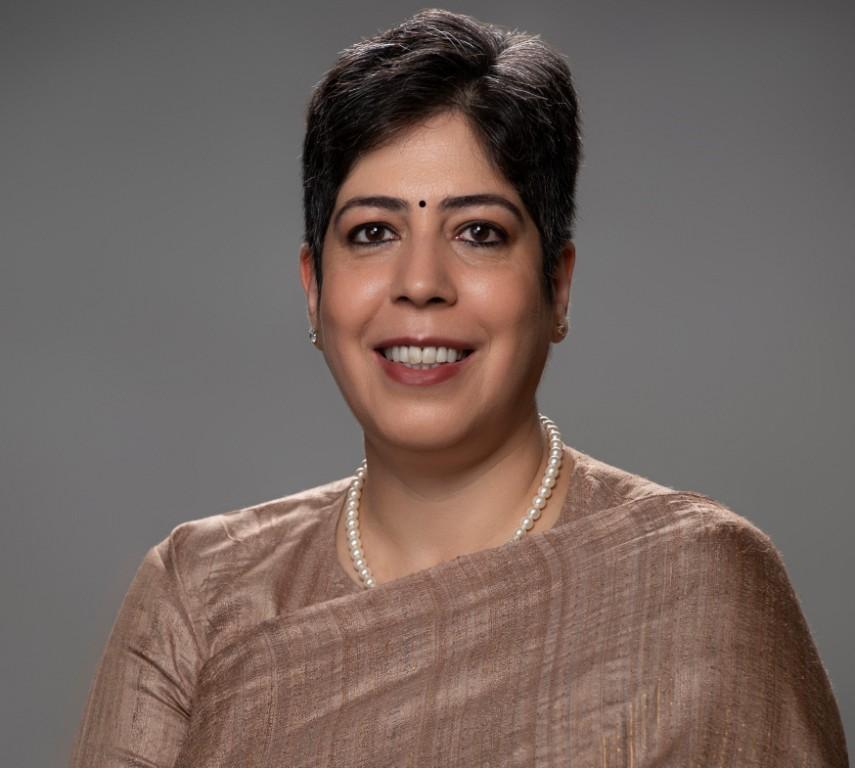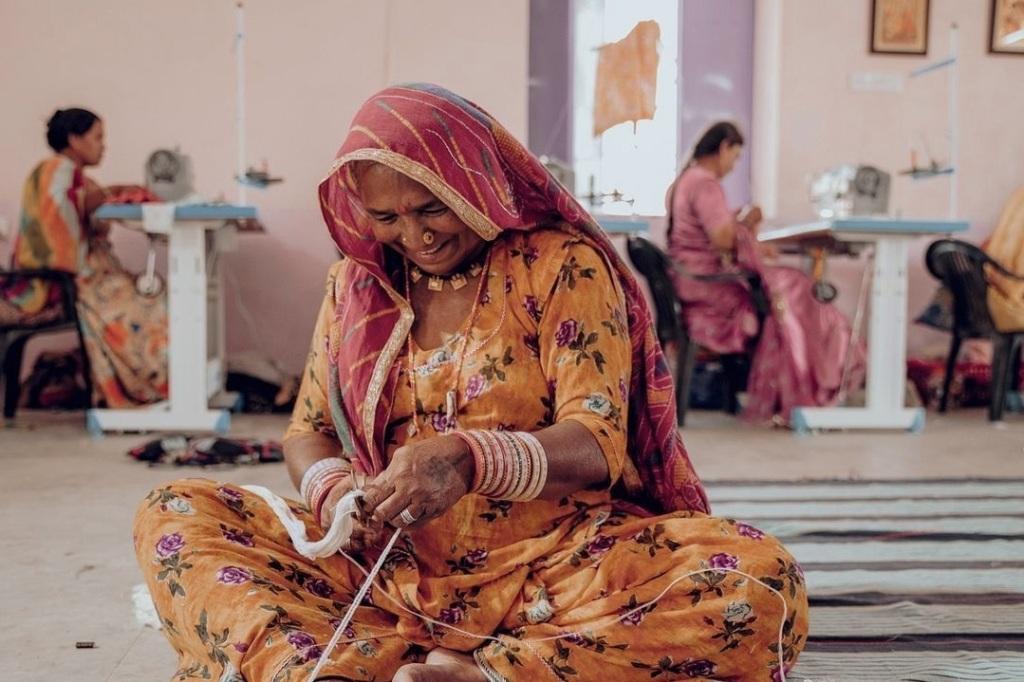 True development is measured not by GDP alone, but by the voices, skills, and leadership of those often left at the margins. In her article, Ms. Puja Trisal, Director, Flipkart Foundation, shows how India’s grassroots communities, particularly women-led collectives and artisan networks, are quietly shaping a more inclusive, resilient, and equitable nation.
True development is measured not by GDP alone, but by the voices, skills, and leadership of those often left at the margins. In her article, Ms. Puja Trisal, Director, Flipkart Foundation, shows how India’s grassroots communities, particularly women-led collectives and artisan networks, are quietly shaping a more inclusive, resilient, and equitable nation.
With over two decades of experience in the development sector, Ms. Trisal has led initiatives across education, livelihood, healthcare, and women’s empowerment, working with leading NGOs and CSR foundations. At the Flipkart Foundation, she drives transformational work in market access, skill development, community development, and environmental responsibility, demonstrating how strategic partnerships and local leadership can create lasting impact.
Her insights provide a vital roadmap for policymakers, corporates, and social sector leaders seeking to co-create initiatives that honour local contexts while advancing India’s broader development agenda.
Read on to explore how India’s grassroots are redefining inclusive development and the lessons they offer for scaling impact nationwide
What India’s Grassroots Can Teach Us About Inclusive Development
There are many ways of looking at economic development and different ways of going about it. I believe that development truly has meaning when it includes and empowers people across socioeconomic strata and regions to participate in the larger growth story. The ongoing efforts towards becoming a ‘Viksit Bharat’, therefore, give special attention to small villages and towns, where almost two-thirds of India’s population resides. Policies and programmes for inclusive development come alive through the on-ground efforts of rural communities. There is much we can learn from India’s grassroots about the tenets of local leadership, shared learning, and collective problem-solving that can guide our national development agenda.
Women as change-makers
An increasing number of women in small towns and villages are taking on the roles of entrepreneurs, educators, or organisers. They do so without the benefit of any formal title or recognition, yet the impact they have on their community is quite remarkable.
There are numerous examples of women-led home-based businesses that produce handcrafted textiles, jute products, and eco-friendly art. Such ventures create employment for the people, especially women in their communities, thereby enhancing economic self-reliance and social dignity.
Some women act as trainers and mentors for other women, imparting basic literacy and digital skills or livelihood skills such as candle-making, weaving, and sustainable crafts. This model of peer-to-peer skilling and knowledge-transfer builds confidence, unlocks economic opportunities, promotes gender equality, and inspires others to learn.
The Flipkart Foundation’s ongoing partnership with the All India Artisans and Craftworkers Welfare Association (AIACA) is a strong example of this spirit. Through this collaboration, over 600 women artisans across Birbhum in West Bengal and Banaskantha and Gandhinagar in Gujarat are being supported to form and lead textile-based collectives. These women are receiving mentorship in enterprise development, brand building, and governance, along with access to markets and financial linkages. The initiative not only enables green entrepreneurship, but also strengthens the creative economy in a way that is rooted in dignity and resilience. It is heartening to see how women, when given the right tools and support, become catalysts of change for entire communities.
Another way in which rural women are creating long-term economic and social impact by establishing cooperatives, networks, self-help groups, and collective enterprises. This enables them to pool their skills, share and increase resources, and achieve better outcomes. I have seen women successfully mobilise communities towards better water management, financial inclusion, and cultural preservation practices.
Partnerships to enhance the effectiveness of trust-based networks
Some of the most effective development models we have today are built on trust-based networks such as self-help groups, artisan collectives, and grassroots-level institutions. We must strengthen these models through partnerships that provide training, capital, and visibility in ways that support, not replace, community ownership.
Today, we are seeing self-help groups in rural areas flourish through partnerships that offer skill development, financial support, and access to new markets. When local leaders, especially women and youth, are supported with the tools and confidence to lead, they become the most effective drivers of change. Training in digital literacy and e-commerce is enabling SHG members to market their products to a nationwide audience. They can modernise their operations, improve product quality, scale up their ventures, and leverage the reach of online marketplaces to achieve financial independence and improve their standard of living.
There are artisan groups in many parts of rural India who have kept traditional art forms alive. By training them in branding and digital marketing techniques, we can not only enhance their livelihood but also preserve and promote our culture.
To truly scale inclusive development, it is important to invest in intergenerational change. Empowering young people in rural areas with civic knowledge, digital fluency, and leadership opportunities can complement the work being done by community elders, creating continuity and resilience across generations.
I believe local leaders, especially women and marginalised groups, who head grassroots-level institutions and governance bodies, are best-placed to drive community development. We should build their confidence and skills in areas such as financial planning and communication through leadership development programmes and project implementation support. This will improve governance and service delivery at the village level.
Co-creating programmes with the intended beneficiaries
Programmes are much more meaningful and impactful when they are co-created with their intended beneficiaries. This is because they can now be designed to meet particular needs, be contextually relevant, and respectful of local traditions and practices. Moreover, such an approach instills a feeling of ownership and dignity, which makes a big difference.
Partnerships that understand and embrace the crucial interplay between civil society, the private sector, and grassroots-level participants are more likely than not to succeed. An OECD study during the COVID-19 pandemic, for instance, found that co-creation initiatives helped in democratising innovation and resulted in more effective and inclusive solutions.
If inclusive development is the goal, then humility is the way to go about achieving it. This means recognising that the drivers of progress already exist at the margins of society. All that’s needed is collaborative support that understands local needs, adapts to the context, and empowers everyone to become a contributor to India’s development and growth story.





 True development is measured not by GDP alone, but by the voices, skills, and leadership of those often left at the margins. In her article, Ms. Puja Trisal, Director, Flipkart Foundation, shows how India’s grassroots communities, particularly women-led collectives and artisan networks, are quietly shaping a more inclusive, resilient, and equitable nation.
True development is measured not by GDP alone, but by the voices, skills, and leadership of those often left at the margins. In her article, Ms. Puja Trisal, Director, Flipkart Foundation, shows how India’s grassroots communities, particularly women-led collectives and artisan networks, are quietly shaping a more inclusive, resilient, and equitable nation.


.jpg)










